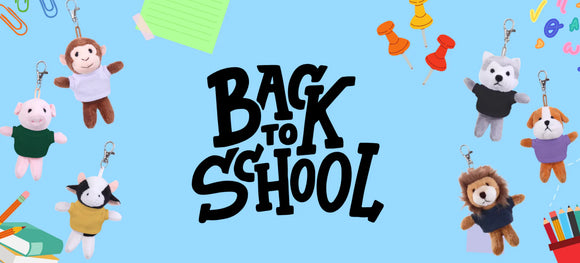
Being a Kid Ain’t Easy - How to help your child cope with insecurities and stress
Ashok Kohli
Everyone has at least one terrible childhood memory. Maybe it was experiencing the classic saying of children can be so cruel. Or you were desperately confused about some part of growing up and had no idea what to do. These solutions are shockingly simple at helping your child stay healthy and happy.
-
Set Significant Barriers
Little things can make a huge impact on child development. Just imagine how much better they feel after putting the lights on when they're afraid of the dark. There are many, many, little things like that. They give your child a real sense of security. It's up to you to find them, establish the boundaries, and uphold them. Basically anything you do can make a significant difference in their sense of security. It's up to you to make sure those are all positive interactions.
This isn't exclusively about being easy with your child. You have to acknowledge when they've broken one of your established boundaries. That's what safety means: rules that have significance and create a predictable world.

-
“Hey Mom/Dad Look at Me!”
You are infinitely busy. You have children to raise, work, and family responsibilities. It’s only when those things are accomplished that you finally get your “Me time.” You deserve to go the gym or watch that show.
All that makes giving your child even more attention difficult. You come home from work and your kid runs up to you. They’ve been waiting all day to tell you a story or show you something. You love them to death... but there’s only one thing on your mind right now: taking a shower and enjoying some peace and quiet.
It’s in those difficult moments that you really get the opportunity to you show your little one how much you love them.
It isn’t easy. But just taking a few minutes to listen to their story, see what they learned at dance practice, or answer their question goes a HUGE way. Those little interactions add up to a happier, more confident child.
-
Talents and Accomplishments
Feeling secure isn’t just about your child’s environment. While a bully or bad coach can affect your child -- it won’t make a difference if your baby is proud of who he is.
Building a personal identity is a process that can take a lifetime. Make sure your child gets off to a good start. Do your best to hone your child’s talents no matter what they are. Improving on his or her skills at sports, writing, reading, drawing, painting, or music will make your child feel special. It gives them something they can be proud of and show to other kids.
It builds their identity as being someone with distinct tastes and skills. They can compete against themselves, get better at the thing, and gain huge confidence from seeing what they’ve achieved.

-
“When Are Daddy and Mommy Coming home?”
It’s hard to think of now: but the human ability to come up with accurate guesses to unknown questions is only developed with a lot of experience.
You see something happen several times so you try to get a correct answer. “Why is their traffic?” “Probably because there’s a huge storm going on right now.”
Your kid doesn’t think that way.
Whenever you come home late from work, something is missing, or you stop doing an activity -- your child wonders what’s wrong. Often, they choose to blame it on themselves.
Beyond that: a schedule reduces uncertainty. They don’t have to wonder what they are doing and constantly be surprised or disappointed. A schedule brings your child into a stable recurring world. They can look forward to watching a show, going grocery shopping, reading, or spending time with a friend. It’s all comfort, and no surprises.
-
“Do you know how much of a little hero you are?”
To this day, you probably feel warm and fuzzy whenever your parents tell you they are very proud of you. Imagine what those same words do on a small child.
You are the ultimate authority figure. You’ve taught your child everything about the world, and take care of them every minute of the day.
As of now... the only way to know if something is good or bad is if you tell them.
That means they look up to you to validate their actions.
Give them massive amounts of verbal and written encouragement.
This can just be a “I’m so proud of you!” or “Wow... you’re turning into an amazing little artist!” It works just as well when the note is written. Put a post-it saying “mommy loves you” on their lunch. Give them a gift and tell them that you want them to think of how proud you are of them every time they look at it.
-
Get Them A Stuffed Animal
Stuffed animals are more than plush toys.
Study from the University of Costa Rica shows they have positive effects on confidence, responsibility, and psychological development. (link)
A stuffed animal is a toy that represents your love. A warm smile kids love every time they see it.
On top of that it teaches your child to be responsible. It’s a stuffed little-brother that they have to take care of, protect, and nurture. It musts them in a position of power for what is probably one of the first times in their lives.
That power and responsibility to change the way they think about themselves, and can significantly improve their development. A stuffed animal is also a friend that is always there for them and they can share their secrets with.
But more than that, it makes them feel loved. And your love is present in that one cuddly animal they will always be by their side.

Stuffed Animal Central?
If you need a cuddly toy to tell a loved one you care, then Plushland is objectively your number one best choice.
From stuffed llama’s to Bears in Underwear. No matter how crazy your favorite animal is -- or how unique of a gift you’re looking for -- you get a “happy child” guarantee.



